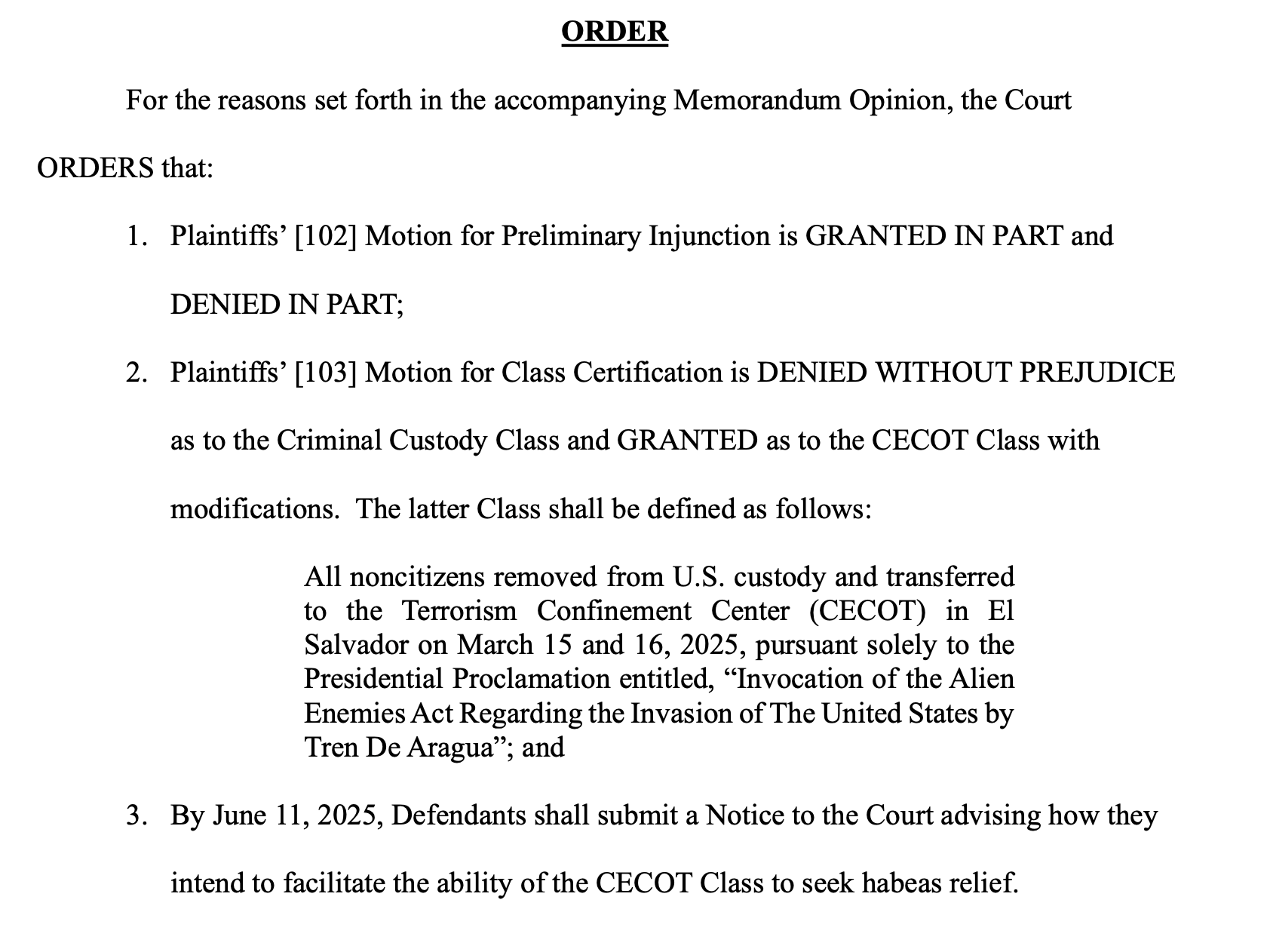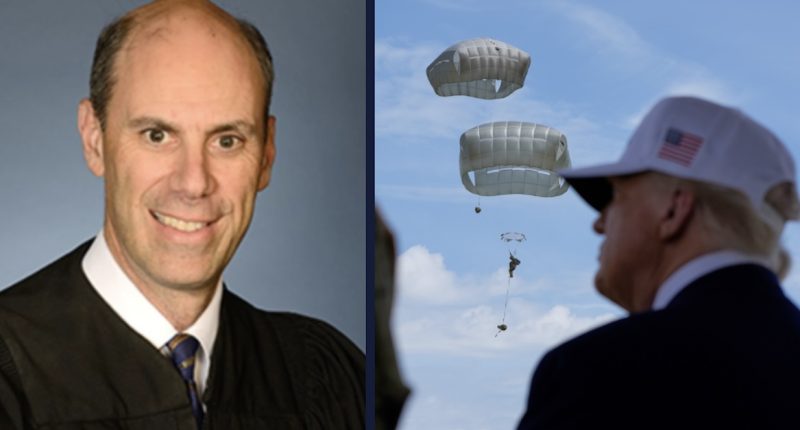Share this @internewscast.com
On the left: Judge James Boasberg of the U.S. District Court for the District of Columbia. On the right: President Donald Trump watching military displays at Fort Bragg on Tuesday, June 10, 2025, in Fort Bragg, North Carolina. (AP Photo/Alex Brandon).
The Trump administration on Tuesday sought a stay of a federal judge’s injunction ordering the government to “facilitate the ability” of a group of deportees in South American terrorist prison to receive due process, claiming that the jurist made up his own theories to transform a legally unavailable habeas corpus action into a due process claim.
In a filing seeking a stay pending appeal — and teeing up the issue for the U.S. Court of Appeals for the District of Columbia Circuit to resolve — the administration argued that Chief U.S. District Judge James Boasberg is encroaching on the government’s sovereignty and acting as if he can order the “invasion of a foreign country” to facilitate the return of “over 100” Tren de Aragua gang members imprisoned in El Salvador’s Terrorism Confinement Center (CECOT) following their hurried March deportations from the United States under the Alien Enemies Act (AEA), a rarely used 18th-century wartime law.
Later on Tuesday, a three-judge panel on the District of Columbia Circuit issued an administrative stay of the injunction while the appellate court weighs the government’s emergency motion for a stay pending appeal.
“The purpose of this administrative stay is to give the court sufficient opportunity to consider the emergency motion for a stay pending appeal and should not be construed in any way as a ruling on the merits of that motion,” read the order from U.S. Circuit Judges Gregory Katsas, Neomi Rao, and Justin Walker — each appointed by President Donald Trump during his first term.
The Trump administration has argued that because the deportees are now in El Salvadoran custody, there is no habeas relief available to those who would take to the U.S. courts to challenge their detainments. That is so because the U.S. “lacks constructive custody over the aliens held at CECOT,” the filing said. And yet, despite acknowledging that lack of constructive custody, Boasberg came up with a theory on his own to retain jurisdiction on due process grounds, the filing continued.
“Instead, this Court sua sponte reasoned that it could exercise jurisdiction over a standalone due process claim targeting the Government’s failure to provide sufficient notice to plaintiffs before they were removed under the AEA,” the government said. “Doing so was in error, even apart from the merits.”
“The Supreme Court has made clear that courts are not advocates; they must evaluate the theories pressed to them, not come up with their own,” the Trump administration added.
Boasberg, a Barack Obama appointee, responded to the deportations in April by moving to hold the Trump administration in criminal contempt for flouting his orders to halt deportation flights and turn planes around, remarking that the deportees were “spirited out of the United States by the Government before they could vindicate their due-process rights by contesting their removability in a federal court, as the law requires.”
Following a mid-May ruling by the U.S. Supreme Court, wherein the justices said “detainees subject to removal orders under the AEA are entitled to notice and an opportunity to challenge their removal,” the case was kicked back down to Boasberg’s court.
Most recently, the judge cited the Supreme Court holding when issuing the preliminary injunction which the Trump administration now opposes, since Boasberg ordered that defendants to reveal “how they intend to facilitate the ability of the CECOT Class to seek habeas relief.”

Judge Boasberg’s June 4, 2025, injunction.
In the government’s view, the appeals court must step in and stay Boasberg’s order pending appeal. A district court forcing the Trump administration’s hand on the issue would be “akin to” a lone jurist claiming the power to order the U.S. government to invade a foreign country or cut a “diplomatic deal,” the filing said:
Regardless of whether this Court could exercise jurisdiction over these due-process claims, this Court’s injunction fails because the purely retrospective due-process violation that this Court identified is not redressable in equity. Indeed, there is no way for this Court to order effective injunctive relief. Plaintiffs are not in United States custody. And the separation of powers prevents this Court from ordering the Executive to retake custody from El Salvador — that would be akin to ordering an invasion of a foreign country or a directive to negotiate a diplomatic deal, neither of which falls within the scope of the Judicial power.
The District of Columbia Circuit has ordered that the plaintiffs respond to the Trump administration’s emergency motion by 5 p.m. on June 16.
Read the Trump administration filing here.















